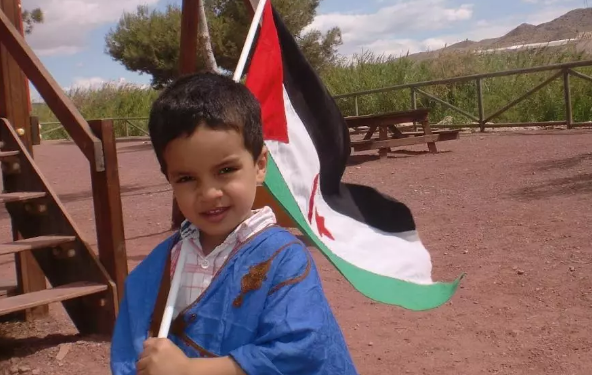The ambassador of the Sahrawi Arab Democratic Republic to Algeria, Abdelkader Taleb Omar, said that the Sahrawi child
in the occupied territories “still daily swallows all forms of violations by the Moroccan occupation, which imposed on him miserable conditions that deprived him of his most basic rights to a decent life, like other children of the countries of the world.”
In a speech at the Memory Forum yesterday, Wednesday, Talib Omar highlighted that the revival of the Day of the African Child for the Sahrawi people “returns in difficult circumstances following the return to the armed struggle, as the Western Saharan child still lacks the minimum conditions for a decent life and bears the burdens and sufferings of a colonizer, superior to His innocence thirsts for life.”
The ambassador said that “a child in Western Sahara remains tied to the fate of his people, who are still suffering under the yoke of Moroccan colonialism and are still suffering from asylum and the policy of segregation and intimidation through the adoption of a strategy targeting all generations, especially children who live in a very dangerous situation.”
He added that the Sahrawi child “is exposed to various types of colonial policies that target his upbringing, educational formation and even his morals through the attempts of the occupier to spread drugs among the youth and to ensure that his identity is obliterated by stuffing the brains of those who were fortunate enough to enter school with false and forged information about the history of their country and exposing another group of them to Arrest and imprisonment of those who tried to utter their right to independence, or even to sing the anthem of their homeland, in the depths of prisons.
Despite all these inhumane practices that have nothing to do with humanitarian laws, the child remains in the occupied territories of Western Sahara – as confirmed by Ambassador Talib Omar – adhering to his identity and morals, especially his inalienable right to self-determination and independence.
In his intervention, the Sahrawi ambassador also referred to the conditions of Sahrawi children in refugee camps, stressing that “despite the conditions of asylum, the Sahrawi administration, with the help of the Algerian authorities, was able to take care of them by guaranteeing them the right to education and health care.”
As for the Chargé d’Affairs of the South African Embassy in the Sahrawi Republic, Selo Patrick Rangomes, he stressed that “although international and humanitarian laws guarantee the children of the world the right to education and health care, the reality of the Sahrawi child, whether in refugee camps or in the occupied territories, does not reflect in any way whatsoever. In any case, this requires – as he added – “to demand the United Nations and international and humanitarian organizations to guarantee the right of the Sahrawi people, especially children, to exercise their most basic rights to education and health, pending the organization of the self-determination referendum.”
The South African diplomat, who recently visited the Sahrawi refugee camps, added that “it is necessary today to initiate practical field changes in the camps or the occupied territories by paying special attention to education, as they are the biggest bet to ensure the future of the rising generations.”
The occasion was an opportunity during which the representative of South Africa reiterated “the need to empower the people of Western Sahara of their right to independence, as stipulated in the relevant United Nations charters.”





